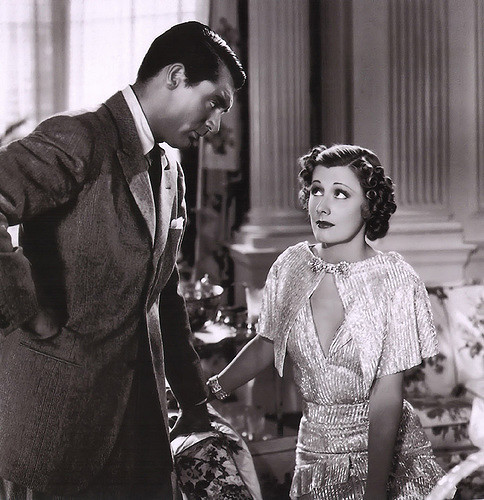My friend Cheyenne is a beautiful girl, inside and out. For the last two years, she was in a relationship with Sean, who was wonderful to her, except when he wasn’t.
He filled her world with sweet words and thoughtful gifts, but when he drank, he raged and spun out of control, sabotaging happiness for both of them, and leaving a path of destruction in his wake.
Still, Cheyenne stayed. Like so many of us who love broken people, she saw the potential in Sean and chose to focus on the good parts of him. She forgave him often and loved him even more, and stuck around long after her own needs stopped being met.
It wasn’t until she caught Sean cheating that she finally left, but the damage had been done. When she did finally pull herself away from the grip of his dysfunction, she was broken and bruised and had some serious healing to do.
I recently wrote about the strength in needing others, and the gift of being needed. There is a difference between a healthy connection that allows us to be vulnerable and trusting and a co-dependent relationship.
According to Mental Health America co-dependency, also called “relationship addiction,” is a learned behavior that affects our ability to have a healthy, mutually satisfying relationship.
In co-dependent relationships, addictions to alcohol or drugs, mental illness, or emotionally or physically abusive behaviors hijack the bonds between partners or spouses, parents, siblings, or friends and leave them feeling angry, fearful, or shameful.
People in co-dependent relationships often deny there is a problem because, like Cheyenne, they hope that, with enough love and attention (and excuses and denial) the problems will disappear.
And, like Cheyenne, co-dependent people tend to put all of their focus on the person who is causing the pain. They sacrifice their own physical, emotional, and sometimes safety needs to put the other person first. With the best of intentions, and usually with a lot of love in their hearts, co-dependent people enable the cycle of abuse or addiction to continue because, through it, they cultivate a sense of feeling needed. The cycle continues, even though the co-dependent person knows they need something different.
So what is the difference between a healthy sense of needing another person and a co-dependent, or addictive relationship? If you find yourself doing the following, you may want to check yourself before you wreck yourself:
- You take responsibility for others’ actions. If you blame yourself for “causing” someone to drink too much or treat you poorly, you are enabling him or her in their negative behavior or addiction. You are not all-powerful, as fantastic as you may be. You have no control over what other people do or say, only what you make space for in your own life.
- You are with someone you want to fix. You cannot be responsible for rescuing another person. While nurturing someone else feels good, doing it without reciprocation is never fulfilling. You cannot fix anyone else; only they can fix themselves.
- You find yourself always being the one who compromises. If you find yourself accommodating the person you’re with by ignoring your inner voice, feeling guilty when you speak up or stand up for yourself, or if you avoid arguments altogether by walking on eggshells, your relationship is not healthy for you.
- Your partner belittles you, in public or in private. There are many things that love is, but what it is not is humiliating. Someone who is truly capable of loving you will not make you feel small. Love manifests more love through strength and nurturing, and it is not a one-way street.
- You stay because you fear being alone. If you hold on to your relationship because you are afraid to be by yourself, or think that no one else will ever want you, don’t. It doesn’t matter what you’ve been told, or what stories you are telling yourself, I promise from my soul of souls that you are stronger than you know, and you are lovable just as you are.
- You can’t live without the other person. If the thought of leaving the other person makes you feel like you could not go on, you may be nurturing a dysfunctional attachment that is entirely different than the healthy bond of a positive relationship. Suicidal feelings, or feeling that you need the other person in order to go on with your life, are not a loving connection in which you build each other up. These thoughts are a warning sign that something is seriously amiss.
- You find yourself consumed by fits of anger for no obvious reason. When we stuff down our feelings to accommodate co-dependency, they show back up in places we least expect them. We may yell at our children or freak out on a co-worker. This is your body trying to get rid of the feelings that are accruing in it; it’s your body telling you that something isn’t right.
- You lie to friends and/or loved ones about your relationship. If you stop talking to your friends or family, or if you tell lies to cover up what’s happening in your life, take note. This is one of the biggest red flags you can have. If you are afraid to let those who love you know what’s going on because they won’t understand or they won’t like your partner, you are only lying to yourself about what’s really best for you. Be honest. If those who are close to you are worried about you, listen. And act.
- Your intuition tells you something is wrong. You are equipped with an inner voice, and it knows what it’s talking about. Nothing good ever comes from shushing your own wisdom. Let it guide you, and honor it. In doing so, you’ll begin to find your own self-love that will carry you through the road ahead.
If you recognize yourself in these nine signs, it’s not too late for a new start. Find support in those who love you most. Find a therapist or capable friend who can walk you through the dark. But most importantly, find the love you need, not in someone else, but in yourself.
Cheyenne is now learning to stand tall on her own once again, and is spending time rebuilding her foundation so that, when the time is right and the person is whole, she will be ready to love again—this time, completely and with her whole self.
Love doesn’t come in bits, and it shouldn’t tear you to pieces. Co-dependency is a cycle that must be broken, and the only person who can do that for you is you.
Author: Amanda Christmann
Editor: Catherine Monkman
Image: Insomnia Cured Here/Flickr









Read 0 comments and reply